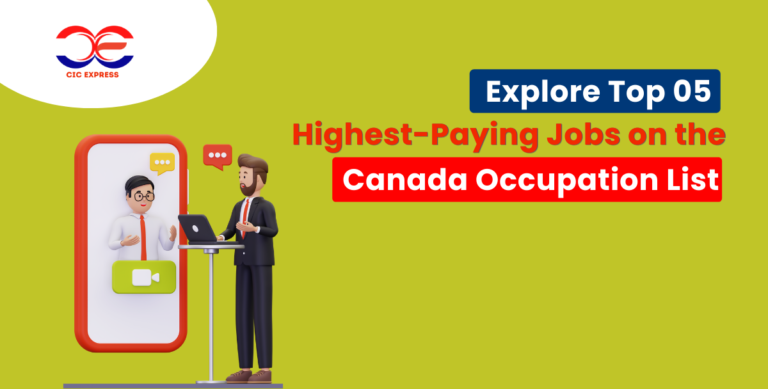Can a Province Revoke or Withdraw my Nomination for the PNP?

Prospective immigrants to Canada may find it very helpful to obtain a Provincial Nominee Program (PNP) nomination, but it’s crucial to remember that provinces have the authority to revoke or withdraw an applicant’s nomination for several reasons.
PNPs are regularly ranked in the top two immigration routes in Canada and are run by eleven of the province and territorial governments of the nation, except Quebec and Nunavut. Both this year and previous, PNPs were the nation’s largest immigration program in terms of the number of applicants accepted.
Note: PNPs are predicted to reclaim the top immigration pathway in Canada for 2025 and 2026, even if Express Entry is predicted to reclaim the top slot in 2024. This is in line with the admissions goals that Immigration, Refugees and Citizenship Canada (IRCC) has announced in the Immigration Levels Plan for 2024–2026.
What does a PNP nomination mean?
A candidate’s prospects of being granted a nomination through one of Canada’s PNPs might significantly alter their likelihood of being granted permanent residence in the country.
This is because a PNP nomination by itself may provide a route for the potential immigrant to enter Canada via one of the numerous channels that each government provides under the specific program. Furthermore, if the nominee is already an Express Entry candidate, a province nomination grants them 600 extra Comprehensive Ranking System (CRS) points; this procedure is known as enhanced nomination.
A candidate in the Express Entry pool with these points is practically guaranteed to receive an Invitation to Apply (ITA) for permanent residence (PR) in Canada.
Can a province revoke or withdraw my nomination for the PNP?
Every participating province usually clarifies that nominees who fail to uphold the terms of their nomination may have their PNP nominations revoked. Before a candidate is granted Canadian permanent residence, this can happen at any moment.
Note: Throughout the rest of the article, the terms revoked, cancelled, and withdrawn will be used interchangeably.
For instance, some requirements might be to hold onto the job offer that first made the candidate eligible for a PNP nomination or to keep the amount of money needed to immigrate to a particular province (depending on the eligibility requirements of the PNP stream).
Misrepresentation, which the Government of Canada defines as “directly or indirectly misrepresenting or withholding material facts relating to a relevant matter,” is another frequent cause of nomination withdrawal. This can include anything about your immigration, such as neglecting to disclose changes to your circumstances (childbirth, job loss, etc.) throughout the application procedure.
In particular, each province has given extra justifications, which are listed below, for the local government to revoke or remove a candidate’s PNP nomination:
The province of British Columbia (BC)
If PNP nominees in BC do not file for PR to IRCC before the nomination expiry date, they risk having their candidacy removed for a variety of reasons.
Read about the British Columbia Provincial Nominee Program (BCPNP)
The Ontario
In Ontario, a candidate must “continue to demonstrate on a reasonable basis an intention to reside in Ontario” until they get PR, according to the government, to prevent having their nomination canceled.
Read about the Ontario Immigrant Nominee Program (OINP)
Also about the Latest OINP Updates
Manitoba
A provincial nomination may be withdrawn by the Manitoba government if it is determined that the nominee does not plan to reside, work, or open a business in Manitoba.
Read about the Manitoba Provincial Nominee Program (MPNP)
The Saskatchewan
PNP nominations for candidates in Saskatchewan may be revoked if any of the following situations occur:
- The nominee has willingly asked to have their nomination withdrawn, either directly or through a representative, if applicable.
- The candidate’s PR application has been granted via a different immigration program than Saskatchewan’s PNP.
Read about the Saskatchewan Immigrant Nominee Program (SINP)
Nova Scotia
In addition, the Government of Nova Scotia states that if “IRCC finds that [the principal applicant, their] spouse or common-law partner, or a dependent is not allowed to immigrate to Canada,” then the candidate may lose their candidacy.
Read about the Nova Scotia Nominee Program (NSNP)
New Brunswick
A candidate’s PNP candidacy may be withdrawn, according to the Government of New Brunswick, if:
- The nominee neglects to file a formal request to modify a nomination before the present certificate’s expiration date.
- It has been established that the applicant does not genuinely intend to reside in New Brunswick.
Labrador and Newfoundland (NL)
If a candidate fails to promptly reveal any changes in their status that arise during the application process, the Office of Immigration and Multiculturalism in the Netherlands states that they risk having their PNP nomination revoked.
This could consist of:
- Status change in marriage
- The birth of a child
- Changes in employment: hours worked decreased, job loss
- obtaining a ruling about a PR or work permit application
Territories in the Northwest
If a candidate in the Northwest Territories does not apply for permanent residence in Canada within six months after obtaining their nomination approval letter, their candidacy may also be revoked on a provincial level.
Alberta, Prince Edward Island (PEI) and Yukon
The provinces of Prince Edward Island, Alberta, and Yukon, the westernmost territory of Canada, do not offer any more information about the grounds on which the municipal governments in these areas may revoke or withdraw a provincial or territorial nomination.
Before applying for their PNP, candidates who are interested in moving to these areas should speak with the relevant authorities and familiarize themselves with the policies.
Read about the Alberta Provincial Nominee Program (APNP)








